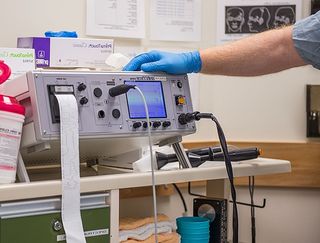Depression
Reviewing the Options for Treatment-Resistant Depression
Treatment-resistance in depression is common and treatable.
Posted October 19, 2019 Reviewed by Ekua Hagan
Major depressive disorder is a common and debilitating condition affecting 10 to 15 percent of the population per year. Despite advances in the understanding of the neurobiology and psychopharmacology of major depression and the recent introduction of several novel classes of antidepressant medication, roughly 20 to 40 percent of patients do not respond to antidepressant therapy (Al-Harbi, 2012).
These treatment-resistant cases, generally defined as failure of at least two or three medication trials, cause prolonged suffering, functional impairment, and increased health care utilization.
A few weeks ago, I authored a piece on the heterogeneity of depression as a psychiatric syndrome, and noted that, in many cases, treatment response depends largely on the type of depressive illness.
Below, I would like to review the options for depression that has not responded to traditional antidepressant therapy, i.e., treatment-resistant depression.
Combining Pharmacotherapy With Psychotherapy
Despite the abundance of research demonstrating that depression, like most psychiatric disorders, responds better to a combination of medication treatment and psychotherapy, the number of depressed patients receiving psychotherapy continues to decline.
While the reasons for this trend are numerous and beyond the scope of this article, the consensus is that psychotherapy and pharmacotherapy are complementary, not antagonistic, approaches to depression treatment. Several types of psychotherapy have been proven effective for depressive illness, including psychoanalytic psychotherapy and cognitive behavioral therapy.
In psychoanalytic therapy, the therapist seeks to help the patient understand the nature of their depression through an investigation of underlying conflicts, developmental factors, and the meaning of depressive symptoms as a reaction to certain life circumstances, such as loss. In cognitive behavioral therapy, the therapist plays an active role in helping the patient identify and challenge negative thought patterns that may be contributing to their depressed mood. Like medication therapy, some patients respond better to a cognitive approach and others to an analytic approach. For patients with a depressive personality, psychoanalytic therapy is the treatment of choice.
For cases of mild or moderate treatment-resistant depression, combining medication with psychotherapy should be considered the first alternative to drug therapy alone. A recent meta-analysis demonstrated the effectiveness of psychotherapy as an add-on treatment for refractory depression (van Bronswijk, Mopen, Beijers, Ruhe, & Peeters, 2019).
Transcranial Magnetic Stimulation
Transcranial magnetic stimulation (TMS) is a relatively new procedure in psychiatry, having been cleared by the Food and Drug Administration in 2008. The Johns Hopkins University Department of Psychiatry & Behavioral Sciences (2019) describes TMS as follows:
TMS is a non-invasive method of brain stimulation that relies on electromagnetic induction using an insulated coil placed over the scalp, focused on an area of the brain thought to play a role in mood regulation. The coil generates brief magnetic pulses, which pass easily and painlessly through the skull and into the brain. The pulses generated are of the same type and strength as those generated by magnetic resonance imaging (MRI) machines. When these pulses are administered in rapid succession, it is referred to as "repetitive TMS" or "rTMS," which can produce longer lasting changes in brain activity.
Approximately 50 to 60 percent of people who fail to receive benefit from antidepressant medication experience a clinically meaningful response with TMS (Stern, 2018). Accrued evidence from meta-analyses demonstrates TMS as a safe and effective option for treatment-resistant depression with an effect size comparable, though less robust, to those seen in patients treated with electroconvulsive therapy (Lee, Blumberger, Fitzgerald, Daskalakis & Levinson, 2012).

Electroconvulsive Therapy
Electroconvulsive therapy (ECT) is the oldest treatment in modern psychiatry—and the most effective. Discovered in the 1930s by the Italian psychiatrist Ugo Cerletti, ECT works by inducing seizure activity via electricity in the frontal lobes of the brain.
The treatment itself lasts only a few minutes, and a usual course of ECT involves treatment two or three times a week for a few weeks, followed by maintenance therapy on an outpatient basis. ECT can be given either unilaterally, across one hemisphere of the brain, or bilaterally, across the whole brain.
While ECT's public standing has been harmed by multiple inaccurate portrayals in film and media, ECT is a safe, painless, and well-tolerated procedure. The idea that ECT is a last-line option for psychiatric illness is somewhat a misconception, as ECT is indicated much earlier in the treatment course for problems such as acute suicidality, acute mania, and lethal catatonia. For treatment-resistant depression, it remains the "gold standard," with a response rate of 70 to 90 percent (Prudic et al., 1996).
Ketamine
Ketamine represents one of modern psychiatry's newest and most exciting treatment options. Long used as an anesthetic drug, ketamine has more recently been investigated as an alternative for major depression. Two main types of ketamine are used in treatment-resistant cases:
- Racemic ketamine, which is most often given as an infusion into the bloodstream. This is sometimes called intravenous, or IV, ketamine. It is a mixture of two mirror-image molecules: "R" and "S" ketamine. While it was approved decades ago as an anesthetic by the FDA, it is used off-label to treat depression.
- Esketamine (Spravato), which the FDA approved in March 2019, is given as a nasal spray. It uses only the "S" molecule.
Ketamine's major advantage over other antidepressant treatments is that it is rapid-acting. Unlike traditional antidepressants, psychotherapy, TMS, and ECT—which all take weeks to work—ketamine can work within hours to improve depressed mood and suicidal ideation. Its application in emergency psychiatry is particularly compelling. One downside is that ketamine has addictive properties and should thus be avoided in patients with a history of substance abuse.
Because research on the psychiatric use of ketamine is relatively new, further studies are needed to compare the effectiveness and side effects of these two options, as well as its longstanding efficacy in patients with treatment-resistant depression.
Conclusion
Treatment-resistant depression represents a significant clinical problem and causes prolonged suffering and impairment in those afflicted. Yet, psychiatry offers various options in these cases, from the very old (psychotherapy and ECT) to the very new (TMS and ketamine). Failure of traditional antidepressant medication is not uncommon, and it may signal the need to consider these alternative treatment options.
References
Al-Harbi, K. S. (2012). Treatment-resistant depression: Therapeutic trends, challenges, and future directions. Patient Preference and Adherence, 6, 369-388.
Johns Hopkins Medicine (2019). Transcranial magnetic stimulation (TMS) service. Retrieved from https://www.hopkinsmedicine.org/psychiatry/specialty_areas/brain_stimul…
Lee, J. C., Blumberger, D. M., Fitzgerald, P. B., Daskalakis, Z. J., & Levinson, A. J. (2012). The role of transcranial magnetic stimulation in treatment-resistant depression: A review. Current Pharmaceutical Design, 18(36), 5846-5852.
Prudic, J., Haskett, R. F., Mulsant, B., Malone, K. M., Pettinati, H. M., Stephens, S., … Sackeim, H. A. (1996). Resistance to antidepressant medications and short-term clinical response to ECT. American Journal of Psychiatry, 153(8), 985-992.
Stern, A. P. (2018, February 23). Transcranial magnetic stimulation (TMS): Hope for stubborn depression [Blog post]. Retrieved from https://www.health.harvard.edu/blog/transcranial-magnetic-stimulation-f…
Van Bronswijk, S., Moopen, N., Beijers, L., Ruhe, H. G., & Peeters, F. (2019). Effectiveness of psychotherapy for treatment-resistant depression: A meta-analysis and meta-regression. Psychological Medicine, 49(3), 366-379.




